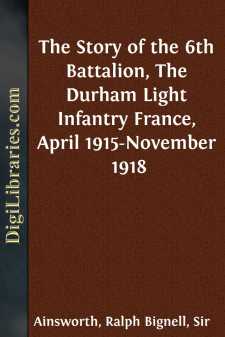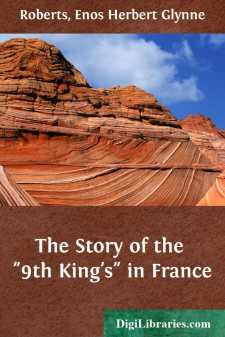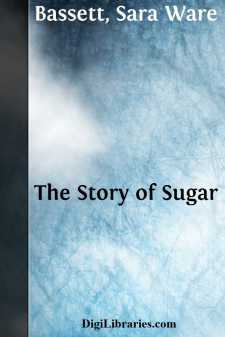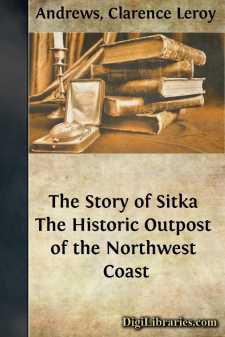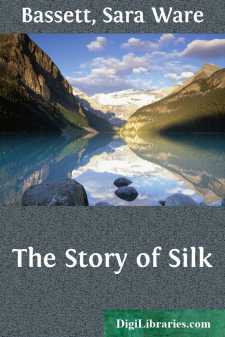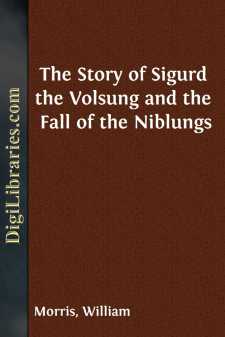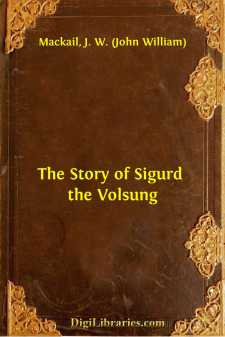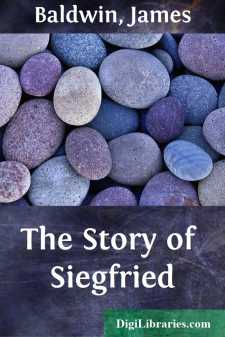Categories
- Antiques & Collectibles 13
- Architecture 36
- Art 48
- Bibles 22
- Biography & Autobiography 813
- Body, Mind & Spirit 142
- Business & Economics 28
- Children's Books 13
- Children's Fiction 10
- Computers 4
- Cooking 94
- Crafts & Hobbies 4
- Drama 346
- Education 46
- Family & Relationships 57
- Fiction 11828
- Games 19
- Gardening 17
- Health & Fitness 34
- History 1377
- House & Home 1
- Humor 147
- Juvenile Fiction 1873
- Juvenile Nonfiction 202
- Language Arts & Disciplines 88
- Law 16
- Literary Collections 686
- Literary Criticism 179
- Mathematics 13
- Medical 41
- Music 40
- Nature 179
- Non-Classifiable 1768
- Performing Arts 7
- Periodicals 1453
- Philosophy 64
- Photography 2
- Poetry 896
- Political Science 203
- Psychology 42
- Reference 154
- Religion 513
- Science 126
- Self-Help 84
- Social Science 81
- Sports & Recreation 34
- Study Aids 3
- Technology & Engineering 59
- Transportation 23
- Travel 463
- True Crime 29
Sort by:
The "Salient." First Phase. The end of March, 1915, found the 50th (Northumbrian) Division of the Territorial Force awaiting orders to proceed overseas. The infantry of the Division consisted of the 149th Infantry Brigade (4th, 5th, 6th and 7th Battalions Northumberland Fusiliers), the 150th Infantry Brigade (4th Battalion East Yorkshire Regiment, 4th and 5th Battalions Yorkshire Regiment, and...
more...
PREFACE My friend, Major G. K. Rose, has set out to describe the doings of the 2/4th Oxfordshire and Buckinghamshire Light Infantry during the Great War. If I judge his purpose rightly, he designs to paint without exaggeration and without depreciation a picture which shall recall not only now, but more especially in the days to come, the wonderful years during which we ceased to be individuals pursuing...
more...
CHAPTER I. England. Shortly after the commencement of the Volunteer Movement in 1859, many members of the newspaper and printing trades in Liverpool were desirous of forming a regiment composed of men connected with those businesses. A meeting was held in the Liverpool Town Hall, and the scheme was so well received that steps were taken towards the formation of a corps. Sanction was obtained, and on...
more...
CHAPTER I COLVERSHAM "Oh, say, Bobbie, quit that algebra and come on out! You've stuck at it a full hour already. What's the use of cramming any more? You'll get through the exam all right; you know you always do," protested Van Blake as he flipped a scrap of blotting paper across the study table at his roommate. Bob Carlton looked up from his book. "Perhaps you're...
more...
CHAPTER I 'Ayah,' the doctor-sahib said in the vernacular, standing beside the bed, 'the fever of the mistress is like fire. Without doubt it cannot go on thus, but all that is in your hand to do you have done. It is necessary now only to be very watchful. And it will be to dress the mistress, and to make everything ready for a journey. Two hours later all the sahib-folk go from this...
more...
SITKAForeword The panorama of sea, island, and mountain, which holds Sitka, Alaska, as a jewel in its setting, is one of the most beautiful of those which surround the cities of the world. Toward the sea from the peninsula on which Sitka is situated stretches an expanse of waters, studded with forest-clad islands which break the swell of the Pacific that foams and tumbles on the outer barriers. To the...
more...
CHAPTER ITHE BRETTON FAMILY Madame Antoinette Bretton went for the third time to the door of her tiny cottage and, shading her eyes, looked anxiously up the side of the ice-capped mountain that flanked the garden. There was still no one in sight, and with a shake of her head she returned to the coarse grey socks she was knitting. It was late afternoon, and through the stillness she could hear the roar...
more...
by:
William Morris
BOOK I. SIGMUND. in this book is told of the earlier days of the volsungs, and of sigmund the father of sigurd, and of his deeds, and of how he died while sigurd was yet unborn in his mother's womb. Of the dwelling of King Volsung, and the wedding of Signy his daughter.There was a dwelling of Kings ere the world was waxen old;Dukes were the door-wards there, and the roofs were thatched with...
more...
BIOGRAPHICAL INTRODUCTION By J. W. Mackail William Morris, one of the most eminent imaginative writers of the Victorian age, differs from most other poets and men of letters in two ways—first, he did great work in many other things as well as in literature; secondly, he had beliefs of his own about the meaning and conduct of life, about all that men think and do and make, very different from those of...
more...
by:
James Baldwin
The Fore Word. When the world was in its childhood, men looked upon the works of Nature with a strange kind of awe. They fancied that every thing upon the earth, in the air, or in the water, had a life like their own, and that every sight which they saw, and every sound which they heard, was caused by some intelligent being. All men were poets, so far as their ideas and their modes of expression were...
more...


